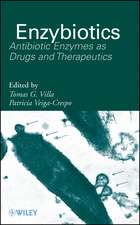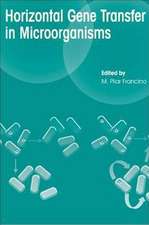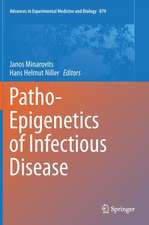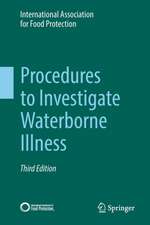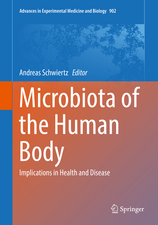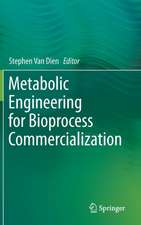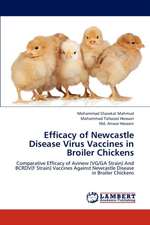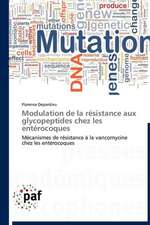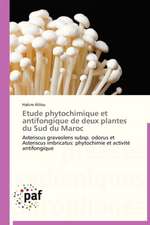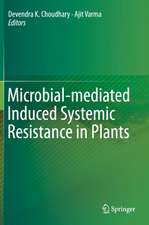New Weapons to Control Bacterial Growth
Editat de Tomas G. Villa, Miguel Vinasen Limba Engleză Hardback – 4 apr 2016
Written by specialists in the different fields, this book presents new perspectives and insights into strategies and weapons to fight microbial infections. It also reviews the “state of the art” of alternative treatment approaches and new therapeutic agents to deal with infections caused by multidrug-resistant microorganisms. In an era of accumulated resistance to current antibiotics, it is vital that this is undertaken without further delay. Aspects discussed include the control of RNA synthesis, the use of bacteriocins or enzybiotics (bacteriophages or purified lysins), the specific control of pathogenic clostridia, the design of new drugs affecting DNA synthesis in bacteria, the use of fecal-matter transplant strategies, the specific control of quorum sensing responses in bacteria, the use of new peptides as antibiotics and new ways to control bacteria that cause cancer, such as Helicobacter pylori cancers.
| Toate formatele și edițiile | Preț | Express |
|---|---|---|
| Paperback (1) | 1229.40 lei 6-8 săpt. | |
| Springer International Publishing – 25 apr 2018 | 1229.40 lei 6-8 săpt. | |
| Hardback (1) | 1235.76 lei 6-8 săpt. | |
| Springer International Publishing – 4 apr 2016 | 1235.76 lei 6-8 săpt. |
Preț: 1235.76 lei
Preț vechi: 1507.01 lei
-18% Nou
Puncte Express: 1854
Preț estimativ în valută:
236.46€ • 246.88$ • 195.70£
236.46€ • 246.88$ • 195.70£
Carte tipărită la comandă
Livrare economică 05-19 aprilie
Preluare comenzi: 021 569.72.76
Specificații
ISBN-13: 9783319283661
ISBN-10: 3319283669
Pagini: 556
Ilustrații: VI, 556 p. 78 illus., 60 illus. in color.
Dimensiuni: 155 x 235 x 32 mm
Greutate: 0.96 kg
Ediția:1st ed. 2016
Editura: Springer International Publishing
Colecția Springer
Locul publicării:Cham, Switzerland
ISBN-10: 3319283669
Pagini: 556
Ilustrații: VI, 556 p. 78 illus., 60 illus. in color.
Dimensiuni: 155 x 235 x 32 mm
Greutate: 0.96 kg
Ediția:1st ed. 2016
Editura: Springer International Publishing
Colecția Springer
Locul publicării:Cham, Switzerland
Public țintă
ResearchCuprins
Bacteriocins.- Control of bacterial growth through RNA degradation.- Control of Pathogenic Clostridia.- DNA-synthesizing enzymes as antibacterial targets.- Inhibition of bacterial efflux pump activity as a way to control microbial growth.- Bacterial protease as targets to control bacterial growth.- Quorum sensing and competence stimulation as targets for antimicrobial chemotherapy.- Transcriptomics as a tool to finding new antibacterial targets.- The case of Lipid II: the Achille´s heel of bacteria.- Microbiome Control in the Prevention and Early Management of Cancer.- Targets against Helicobacter pylori and other tumor-producing bacteria.- Intestinal Microbiota: First barrier against gut-affecting pathogens.- Fecal matter implantation as a way to fight diarrhea-causing microorganisms.- Different approaches for searching new microbial antibiotics controlling bacterial growth.- Synthetic peptides as antimicrobials.- The use of nanoparticles for antimicrobials delivery.- Predation and competition: bacteriophages and bacteria as antimicrobial agents.
Notă biografică
Tomás G. Villa
Department of Microbiology, Biotechnology Unit, Faculty of Pharmacy, University of Santiago de Compostela, Spain
Miguel Viñas
Dept. Pathology and Experimental Therapeutics, Faculty of Medicine, University of Barcelona, Spain
Textul de pe ultima copertă
Written by specialists in the different fields, this book presents new perspectives and insights into strategies and weapons to fight microbial infections. It also reviews the “state of the art” of alternative treatment approaches and new therapeutic agents to deal with infections caused by multidrug-resistant microorganisms. In an era of accumulated resistance to current antibiotics, it is vital that this is undertaken without further delay. Aspects discussed include the control of RNA synthesis, the use of bacteriocins or enzybiotics (bacteriophages or purified lysins), the specific control of pathogenic clostridia, the design of new drugs affecting DNA synthesis in bacteria, the use of fecal-matter transplant strategies, the specific control of quorum sensing responses in bacteria, the use of new peptides as antibiotics and new ways to control bacteria that cause cancer, such as Helicobacter pylori cancers.
Caracteristici
Reviews the “state of the art” of alternative treatment strategies and new therapeutic agents to deal with infections caused by multidrug-resistant microorganisms Suggests new research approaches Provides insights into avoiding antimicrobial resistance Includes supplementary material: sn.pub/extras

